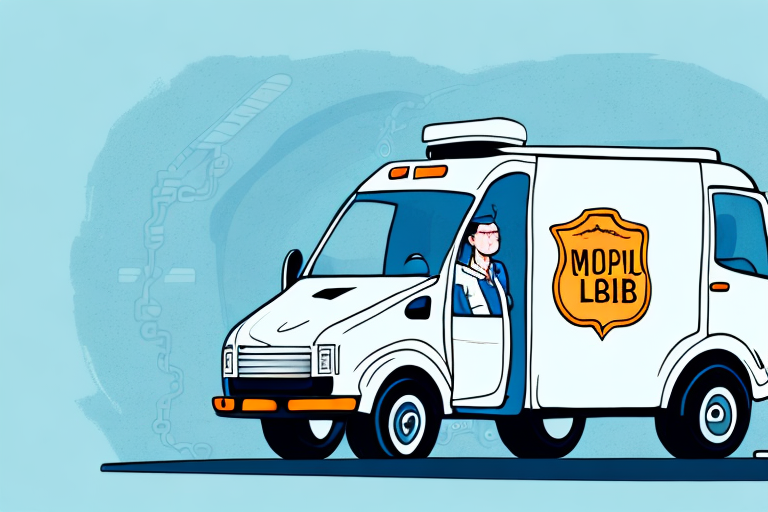Delivering Quality Care: How Courier Medical Services Are Transforming Healthcare
In today’s healthcare environment, the delivery of medical supplies, medications, and lab specimens is more critical than ever. While healthcare providers focus on delivering quality patient care, there is a growing need to ensure that medical deliveries are managed efficiently, quickly, and securely. Courier medical services play a crucial role in transforming healthcare by providing reliable and timely delivery of medical products and services, helping healthcare providers optimize patient care and outcomes.
The Importance of Efficient Medical Delivery Services
Efficient medical delivery services are essential for several reasons:
- Operational Streamlining: Helps healthcare providers streamline operations, reduce waiting times, and better manage resources.
- Quality Patient Care: Ensures that medical supplies, test results, and medications are delivered on time, enhancing the quality of care.
- Cost Reduction: Eliminates the need for in-house delivery personnel, thereby reducing operational costs.
- Enhanced Patient Experience: Provides a seamless, hassle-free experience for patients.
Moreover, in emergency situations, timely delivery of medical supplies and medications can be a matter of life and death. Medical couriers are trained to handle urgent deliveries, ensuring that critical supplies reach hospitals and clinics promptly.
Courier medical services also play a vital role in distributing medical supplies to remote areas. By overcoming geographical barriers, they improve health outcomes for populations in underserved regions.
The Evolution of Courier Medical Services
A Brief History
Courier medical services have evolved significantly since their inception in the early 1900s. Initially focused on delivering laboratory specimens and test results, these services expanded in the 1970s with the advent of air travel, enabling faster transportation of medical items over long distances. Today, they encompass a wide range of services, including the delivery of medical devices, equipment, and organs for transplant surgeries.
The Impact of COVID-19
The COVID-19 pandemic accelerated the adoption of courier medical services. With the need for social distancing and minimizing in-person contact, the demand for contactless delivery options surged. Courier services became essential in ensuring the timely delivery of COVID-19 test results, vaccines, and medical supplies, highlighting their critical role in public health.
Future Trends
The future of courier medical services is poised for continued innovation with the integration of drones and automated delivery systems to increase speed and efficiency. Additionally, advancements in telemedicine will further rely on courier services to deliver remote medical consultations and virtual care.
Benefits of Courier Medical Services
For Patients
- Convenience: Patients can receive medications and medical supplies at home, eliminating the need for travel to pharmacies or medical facilities.
- Timeliness: Ensures prompt delivery of medications, lab results, and supplies, enhancing treatment adherence and health outcomes.
- Cost-Effectiveness: Reduces transportation costs and minimizes time off work for patients requiring regular medical supplies.
For Healthcare Providers
- Improved Outcomes: Timely access to critical medical supplies and information supports effective patient care.
- Reduced Errors: Direct and secure delivery of medications minimizes the risk of medication errors.
- Inventory Management: Efficient delivery services help manage medical supplies and equipment inventory, ensuring availability when needed.
The Role of Technology in Streamlining Medical Deliveries
Technology is integral to modern courier medical services. Advanced systems such as GPS tracking, barcodes, and real-time tracking software ensure that deliveries are accurate, secure, and timely. These technologies enable:
- Shipment Management: Healthcare providers can monitor and manage shipments efficiently.
- Issue Resolution: Quick identification and resolution of delivery issues enhance reliability.
- Regulatory Compliance: Ensures adherence to healthcare regulations and standards.
Additionally, temperature-controlled packaging and monitoring systems maintain the integrity of sensitive medical products, such as vaccines and blood products, during transit. This technology prevents spoilage and ensures that medical products arrive in optimal condition.
Challenges and Solutions in Courier Medical Services
Managing Supply Chain Disruptions
Supply chain disruptions can impede timely deliveries. To address this, courier services should establish robust contingency plans and diversify their logistics networks.
Increasing Demand
The rising demand for medical courier services requires scalable solutions. Investing in efficient routing and tracking systems can help manage higher volumes without compromising service quality.
Security and Confidentiality
Ensuring the security of sensitive medical information and supplies is paramount. Implementing comprehensive security protocols and regular staff training can mitigate these risks.
Maintaining Specimen Integrity
Medical specimens require proper handling and transportation to ensure accurate test results. Investing in specialized packaging and training staff on proper protocols is essential to maintain specimen integrity.
Case Studies: Successful Implementations in Healthcare Systems
Several healthcare providers have effectively integrated courier medical services, leading to improved patient care and operational efficiency:
University of Utah Health Care (UUHC)
UUHC implemented a courier service program to ensure timely delivery of medical supplies and lab results, resulting in significant patient care improvements and annual savings of approximately $1 million.
Franciscan Health
By utilizing a third-party courier service for its medical supply chain, Franciscan Health achieved reduced costs, improved logistics, and enhanced patient care quality.
Mayo Clinic
The Mayo Clinic’s courier service program for transporting medical specimens between facilities has led to faster lab result turnaround times and reduced transportation costs.
Alaska Native Tribal Health Consortium (ANTHC)
ANTHC’s courier service program ensures the delivery of medical supplies to remote healthcare facilities, improving patient care outcomes and reducing emergency medical evacuation costs.
Best Practices and Risk Management in Utilizing Courier Services
Best Practices
- Robust Delivery Protocols: Implement standardized procedures for all deliveries to ensure consistency and reliability.
- Tamper-Evident Packaging: Use secure packaging to protect medical supplies and maintain their integrity.
- Real-Time Tracking: Incorporate tracking systems to monitor deliveries in real-time, enhancing transparency and accountability.
- Regular Audits: Conduct periodic evaluations of courier service providers to ensure compliance with standards and identify areas for improvement.
Risk Management
To mitigate potential risks associated with third-party courier services, healthcare providers should:
- Due Diligence: Thoroughly vet courier service providers to ensure they meet security and compliance standards.
- Security Protocols: Implement strong data protection measures to safeguard sensitive medical information.
- Staff Training: Ensure couriers are trained in handling medical supplies and maintaining confidentiality.
Conclusion
Courier medical services are revolutionizing the healthcare industry by providing reliable, secure, and timely delivery of medical supplies, medications, and lab specimens. As healthcare providers continue to prioritize quality patient care, the importance of efficient delivery services becomes increasingly evident. By partnering with the right courier service provider, healthcare organizations can enhance operational efficiency, improve patient outcomes, and deliver an exceptional patient experience.






